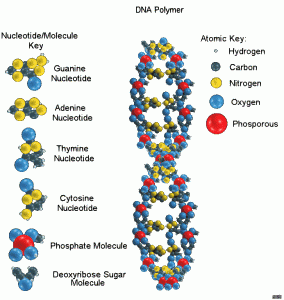Brain Stimulation During Non-REM Sleep Enhances Memory
Transcranial application of low-frequency electrical current during early nocturnal sleep potentiates the subject’s ability to remember words memorized the night before, German neuroendocrinologists report in this week’s online issue of Nature. It is widely believed that sleep is linked with the long-term consolidation of new memories, via slow potential oscillations < 1 Hz that arise […]
 Transcranial application of low-frequency electrical current during early nocturnal sleep potentiates the subject’s ability to remember words memorized the night before, German neuroendocrinologists report in this week’s online issue of Nature.
Transcranial application of low-frequency electrical current during early nocturnal sleep potentiates the subject’s ability to remember words memorized the night before, German neuroendocrinologists report in this week’s online issue of Nature.
It is widely believed that sleep is linked with the long-term consolidation of new memories, via slow potential oscillations < 1 Hz that arise from the prefrontal neocortex, the research team at the University of Lubeck explains. However, many consider oscillations in brain potentials to be "mere epiphenomena."
To further investigate, lead author Dr. Lisa Marshall and her associates recruited 13 healthy medical school students. Oscillating potential fields at a frequency of 0.75 Hz were induced during five 5-minute intervals separated by 1-minute intervals free of stimulation by electrodes, which were applied bilaterally at frontolateral locations and at the mastoids.
The stimulation was started 4 minutes after subjects had entered no-rapid-eye-movement (non-REM) sleep, a time when sleep is expected to progress into slow-wave sleep. Subjects were assessed by a paired-association learning task consisting of 46 word-pairs. Recall memory was assessed just before sleep and then again early the next morning.
Memory recall averaged approximately 37 words prior to sleep. Memory increased by 5 words after electrical stimulation versus 2 words (p = 0.01) after sham stimulation, an increase that researchers attribute to hippocampus-dependent declarative memory. Moreover, shifting the timing of stimulation to the period shortly before awakening had no effect on declarative memory
Dr. Marshall’s group also conducted tests to see if this slow oscillation current affected a non-declarative, procedural finger-sequence tapping task. While the correct tapping sequences improved after sleep, procedural skill was not affected by electric stimulation.
These results, say the authors, “are consistent with reports that hippocampus-dependent memories benefit mainly from early slow-wave sleep, and procedural memories from REM sleep (which prevails during late sleep).”
EEG recordings showed that electric stimulation acutely facilitated endogenous slow oscillations, suggesting that stimulation induces a “physiologically coherent pattern of activity in this system.”
According to Dr. Marshall’s group, these findings challenge the view that slow potential oscillations are mere epiphenomena with no physiological significance. Instead, they contend that “extracellular slow potential oscillation comparable with that accompanying brain-borne slow oscillations is itself sufficient to increase memory, implicating field effects in cognitive processing during sleep.”
Nature 2006.
(from medscape.com)








